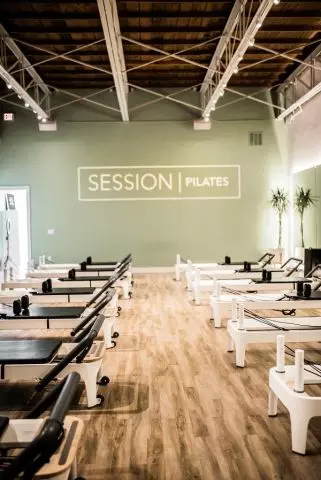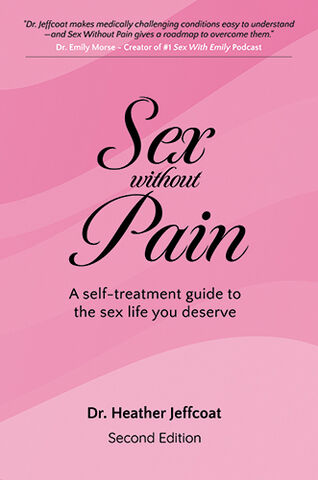Let's Talk Pilates for Urinary Incontinence and Low Back Pain
"Physical Therapy is the first line of treatment for any type of urinary incontinence."
Incontinence, or unwanted urinary leakage, is commonly experienced by women, especially during pregnancy and postpartum. Experts often state, and research supports, it occurs in 1 in 3 women. While this may be common, it is not normal, and it is treatable! Physical therapy is the first line of treatment for any type of urinary incontinence. In fact, pelvic floor muscle training for women with stress urinary incontinence is six times more likely to result in a cure or a significant improvement. For all other types, women are twice as likely to report significant improvement or completely resolve their urinary incontinence. As you can imagine, getting help can dramatically improve their quality of life.
There is a connection between those who suffer from urinary incontinence and low back pain.
A study in 2013 showed that 52% of the women in their cohort (community-dwelling women in North America) that have been diagnosed with mixed urinary incontinence also have low back pain.1 Conservative treatment, including physical therapy and the proper core exercises, can significantly help reduce low back pain, and incontinence at the same time!
During physical therapy, we examine not only the pelvic floor musculature, but also other muscles that support the pelvic floor, such as outer hips, inner thighs, and the low back. We also consider posture and breathing mechanics, as all of these factors can lead to incontinence. Moreover, we confirm that the pelvic floor muscles are in fact weak, and need strengthening, as this is not always the case. Sometimes when the muscles are tight, or maybe working too hard, the muscles become less effective at doing their job, like maintaining continence. This would be a different treatment plan, but completely treatable with your physical therapist! If you have low back pain as well, physical therapists will address this region, which may help improve incontinence in doing so! Physical therapists are trained movement specialists, so it is important to get an assessment first, before starting an exercise program such as Pilates.
Pilates For Urinary Incontinence and Low Back Pain
Pilates can be another beneficial and great adjunct to physical therapy. Pilates was first developed by Joseph Pilates, and this program focuses on alignment, breathwork, and specific muscles. Joseph Pilates believed that lumbosacral stability comes from the “powerhouse” muscles and focused his exercises on the transverse abdominis, multifidus, abdominal obliques, diaphragm, and pelvic floor muscles. In addition, Pilates emphasizes proper alignment of the head, shoulder, and pelvic girdle in a neutral position and maintaining natural spinal curvatures throughout the exercises. Culligan, et al found in 2010 that Pilates programs resulted in improved strength in the pelvic floor muscles.3 As a bonus, practicing pilates for urinary incontinence can also significantly reduce low back pain. One study showed 12 weeks of Pilates intervention exercises reduced pain intensity, reduced fear of movement and improved thickness of the deep trunk muscles.
After you’ve been checked and assessed by your pelvic floor physical therapist, Pilates exercise programs are a wonderful way to manage urinary incontinence and low back pain. It is important that you know how and when to engage your pelvic floor during exercises. We recognize the tremendous benefits in applying Pilates exercises to our treatments, and have our own Pilates reformers as well as a Pilates teacher in our clinic. If you have any questions at all, do not hesitate to call us at Femina/Fusion Wellness Physical Therapy or your local pelvic floor physical therapist!
Click here to see more blog posts on low back pain and urinary incontinence.
References:
1. Bush HM, Pagorek S, Kuperstein J et al. The Association of Chronic Back Pain and Stress Urinary Incontinence: A Cross-Sectional Study. J Women's Health Phys Therap 2013; 37(1):11–8.
2. Cruz-Diaz D, Romeu M, Velasco-Gonzalez C, Martinez-Amat A, Hita-Contreras F. The effectiveness of 12 weeks of Pilates intervention on disability, pain and kinesiophobia in patients with chronic low back pain: a randomized controlled trial. Clinical Rehab 2018;32(9):1249-1257.
3. Culligan P, Scherer J, Dyer K et al. A randomized clinical trial comparing pelvic floor muscle training to a Pilates exercise program for improving pelvic muscle strength. Int Urogynecol J 2010;21:401-408.
4. Domoulin C, Cacciari LP, Hay-Smith EJC. Pelvic floor muscle training versus no treatment, or inactive control treatments, for urinary incontinence in women (Review). Cochrane Database of Systematic Reviews 2018, Issue 10, Art. No.:CD005654. DOI: 10.1002/146J1858.CD005654.pub4
5. Eliks M, Zgorzalewicz-Stachowiak M, Zeńczak-Praga K. Postgrad Med J 2019;95:41–45.













